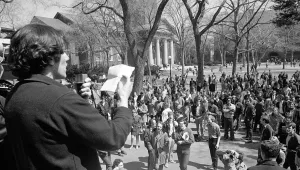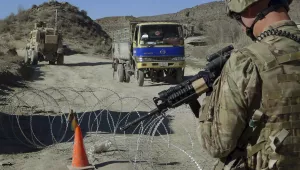Executive Summary
The major international actors involved in Afghanistan—the US, NATO, and the UN—have reached a negative tipping point. Five interrelated problems have handicapped their efforts for the past seven years.
- Lack of clarity on the purpose of the Afghan mission and lack of agreement on objectives
- Lack of coordination among international actors and between international actors and the Afghan government
- Insufficient resources
- Focus on the central government at the expense of provincial, district, and local level initiatives
- Focus on Afghanistan at the expense of the region
If not addressed, these problems will continue to undermine the effort in Afghanistan. This report analyses these problems and provides recommendations about how to move forward more effectively. Among the recommendations, the following three are critical and require immediate action by the US, NATO, and the UN:
- The coalition needs to reframe the mission so that everyone understands the purpose and objectives of the effort in the same terms. For the US and NATO, the purpose of the mission today is security. The objective is to stabilize Afghanistan and the region so that they are not safe-havens for terrorists. For the UN, the objective is to enable Afghanistan to become a viable state. Afghanistan will not be stabilized or viable in the next the next 3-5 years. To achieve their most fundamental objectives, the US, NATO, and the UN will need to be deeply involved in Afghanistan for at least 20 years.
- The US, working with the United Nations Assistance Mission in Afghanistan (UNAMA), needs to establish a Regional Contact Group made up of the many envoys already appointed (with a few additions) to better coordinate international efforts outside of Afghanistan.
- The international community needs to engage broader regional players to invest in Afghanistan’s success. Afghanistan’s neighbors and other regional actors need to join in a shared vision for Afghanistan based on the principle that Afghanistan and the region cannot provide safe havens for terrorists and their supporters.
Unfavorable circumstances and dynamics have emerged and are taking root and the situation in Afghanistan and the region continues to deteriorate. The major players in Afghanistan can still achieve a positive outcome if they build on the momentum generated by President Barack Obama’s election and his administration’s focus on Afghanistan. The US, NATO, and the UN must act quickly to reverse these negative trends and begin changing the game on the ground and in the region.
For the full paper, click here.
Bajraktari, Yll and Peter Roady. “Afghanistan: Changing the Frame, Changing the Game.” Belfer Center for Science and International Affairs, Harvard Kennedy School, March 2009



